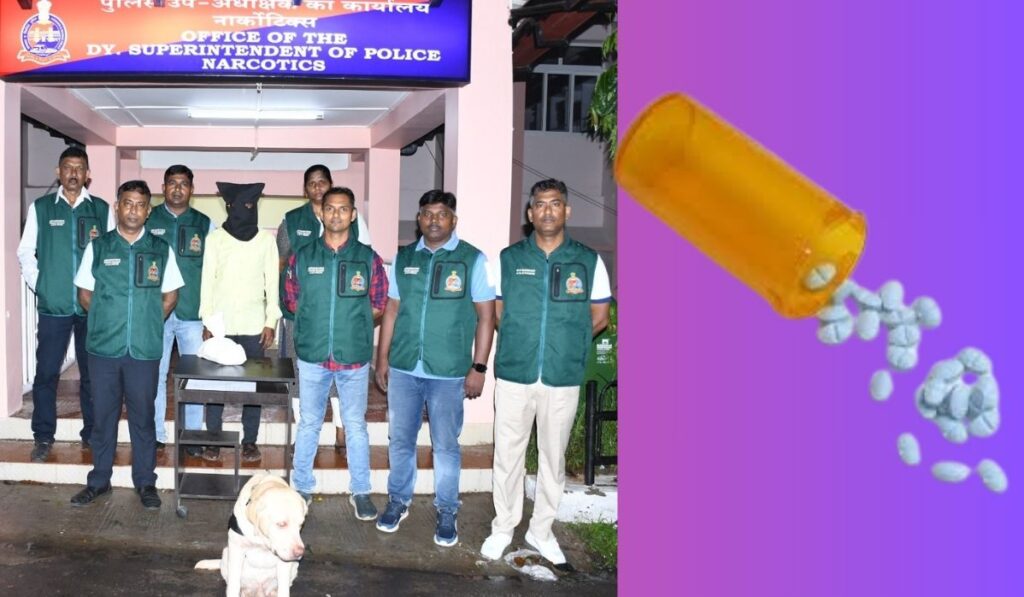Tarun Karthick
Port Blair, 01 June 2024
On May 31, 2024, the Anti-Narcotics Police Station of the Andaman and Nicobar Police successfully seized 1,140 Alprazolam tablets, each with a dosage of 0.5 mg, at Veer Savarkar International Airport in Port Blair. The seizure was made with the assistance of a sniffer dog from an individual attempting to import these tablets into Port Blair, as announced by the official X handle of the Andaman and Nicobar Police.
The accused has been booked under the relevant sections of the Narcotic Drugs and Psychotropic Substances (NDPS) Act, 1985.
Alprazolam, a powerful benzodiazepine, is commonly prescribed for generalized anxiety disorder (GAD), panic disorders, and insomnia. However, its high potential for addiction makes it a serious public health concern. Long-term use of Alprazolam can lead to tolerance, requiring higher doses to achieve the same effects, and ultimately resulting in dependence and addiction.
Symptoms of Alprazolam addiction can be severe. Users may consume up to 20 or 30 pills a day and face withdrawal effects such as anxiety, restlessness, insomnia, and tremors when attempting to stop. The presence of these withdrawal symptoms indicates a physical dependence on the drug.
Once addicted, individuals often neglect daily responsibilities, including work, school, and family, in favour of drug-seeking behaviour. Other behavioural signs of Alprazolam addiction include:
– Continued use despite personal difficulties.
– Inability to stop using the drug despite wanting to.
– Loss of interest in previously enjoyed activities.
– Obsessive thoughts about obtaining and using Alprazolam.
– Loss of control over the amount being consumed.
– Legal problems resulting from use.
– Engaging in risky behaviours, such as driving under the influence.
The import of such a highly addictive benzodiazepine in significant quantities is alarming. As a Schedule H1 drug, Alprazolam can only be sold by pharmaceutical chemists with a valid prescription. Chemists are required to maintain a separate register recording the patient’s identity, contact details of the prescribing doctor, and the name and quantity of the dispensed drug.
This incident highlights the ongoing efforts of law enforcement to curb the illegal distribution and abuse of controlled substances.

